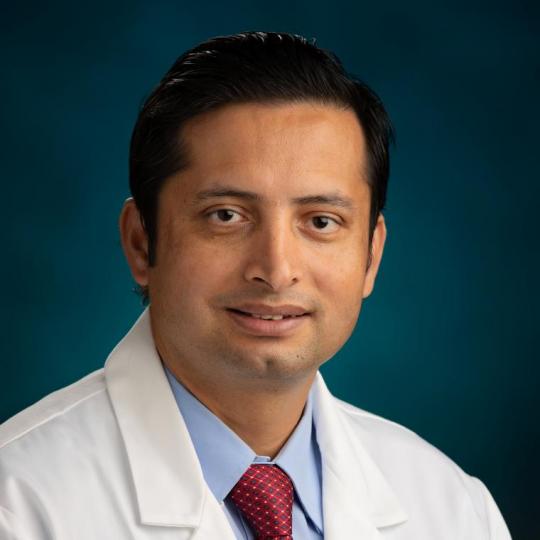Cardiac amyloidosis
Overview
Amyloidosis is a term used for a group of diseases that are caused by deposition of abnormal proteins called amyloids.
Accumulation of abnormal proteins called amyloids in the heart muscle is referred to as amyloid heart disease or cardiac amyloidosis. When amyloid deposits in the heart wall, it increases the thickness of the muscle causing it to stiffen. This affects your heart’s ability to pump blood and relax. This leads to congestive heart failure, which causes shortness of breath and swelling of your legs or abdomen due to the accumulation of fluid.
The buildup of amyloids in the heart can also cause irregular heart rhythm called atrial fibrillation (AF) and heart blockage that could require a pacemaker.
Common symptoms
- Difficulty breathing with minimal walking/exertion
- Swelling of the legs and ankles
- Abdominal swelling
- Fatigue and weakness
- Unable to lie flat in bed or sleeping with more pillows due to difficulty breathing
- Atrial fibrillation (irregular heart rhythm)
- Heart blocks
- Narrowing of heart (aortic) valve
- Increased heart muscle thickness on echocardiography
- Intolerance (dizziness, hypotension) to standard heart failure medications
Specialty care
Treatment options
Cardiac amyloidosis can do undiagnosed or misdiagnosed for years as it can mimic other conditions. Cardiac amyloidosis is a progressive disease and early diagnosis is critical in altering the course of the disease. It is important to talk to specialists in the field if you have symptoms of amyloidosis like congestive heart failure, shortness of breath, irregular heart rhythm, neuropathy, unexplained stroke, swelling of legs or ankles, or kidney dysfunction. SIU Medicine specialists use the following tests to arrive at the correct diagnosis:
- Detailed history and physical examination
- Review of previous medical records
- Electrocardiogram (EKG) – this will be done in the heart doctor’s office
- Ultrasound of the heart (Echocardiogram)
- Blood tests
- Urine tests
- Nuclear medicine scan – which is safe for patients with kidney disease and does not involve contrast or dye.
- Cardiac MRI – if needed
- Biopsy — in rare circumstances
These tests help the specialists to determine the type of amyloid and the extent of cardiac amyloidosis. Based on the test results further evaluation, treatment and/or referral to other specialists will be made.
Treatment of amyloidosis depends on the symptoms, type of amyloidosis, organs affected and how far the disease has progressed. The main goal of treatment in any type of amyloidosis is to slow down or stop the production of abnormal proteins. Treatment success depends on an early diagnosis and type of amyloid.
Patients with symptoms of congestive heart failure who have shortness of breath, swelling of ankles or legs due to excess of fluid retention are treated with water pills (diuretics) and appropriate lifestyle modification recommendations.
Patients with heart rhythm problems, like heart blocks or arrhythmias, will also see an electrophysiologist as part of their care team.
Patients with very advanced heart disease will be referred to a heart failure specialist for evaluation and consideration for a heart transplant.



